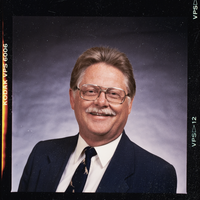Search the Special Collections and Archives Portal
Search Results


Jack McBride: digital photographs
Date
2015-07-28
Archival Collection
Description
Photographs from the University of Nevada, Las Vegas Creative Services Records (2010s) (PH-00388-05).
Image
Men's Basketball locker room for ticket brochure: digital photographs
Date
2011-07-12
Archival Collection
Description
Photographs from the University of Nevada, Las Vegas Creative Services Records (2010s) (PH-00388-05).
Image
Konami Gaming - newly refurbished laboratory: digital photographs
Date
2011-07-14
Archival Collection
Description
Photographs from the University of Nevada, Las Vegas Creative Services Records (2010s) (PH-00388-05).
Image
Sparer, Jon
Jon Sparer is an architect in Las Vegas, Nevada who has worked on numerous hotels and casinos. He moved to Las Vegas in July 1981 and worked for the architecture firm Rissman and Rissman before joining Marnell Corrao. After briefly retiring in 1999, Sparer opened his own architecture firm and was contacted by Congregation Ner Tamid (of which he was a casual member) to design their new temple in Green Valley. Jon was married to another successful architect, John Klai. Both were very instrumental in the opening of The Center.
Person
Pagination
Refine my results
Content Type
Creator or Contributor
Subject
Archival Collection
Digital Project
Resource Type
Year
Material Type
Place
Language
Records Classification





